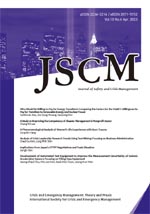Implications from Japan's CPTPP Negotiations and Trade Situation
Implications from Japan's CPTPP Negotiations and Trade Situation
- 위기관리 이론과 실천
- JSCM(Journal of Safety and Crisis Management)
- Vol.13 No.4
-
2023.0447 - 50 (4 pages)
-
DOI : 10.14251/jscm.2023.4.47
- 2

This study conducted an analysis of Japan's negotiation strategy and its impact on the pork industry as Japan pursued accession to the CPTPP agreement. Due to the CPTPP's principle of no exceptions in tariff elimination, Japan has consistently emphasized its negotiation goal of minimizing agricultural liberalization, with pork being the most representative product. Through an analysis of Japan's pork import situation, this study derived the characteristics of Japan's pork tariff system. It appears that Japan is implementing very strong protective measures against pork imports through measures such as the gate price system, but an examination of import trends shows that the gate price system is hardly functioning. This observation holds true even after the conclusion of the CPTPP. As trade systems and actual operational situations may differ among countries, it is necessary to analyze these situations carefully and formulate negotiation strategies that can maximize our country's interests.
Introduction
Background
Methods
Results
Conclusion
References
(0)
(0)